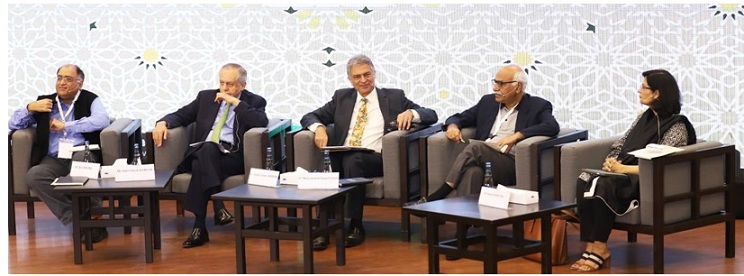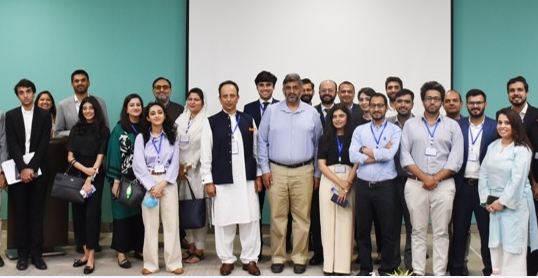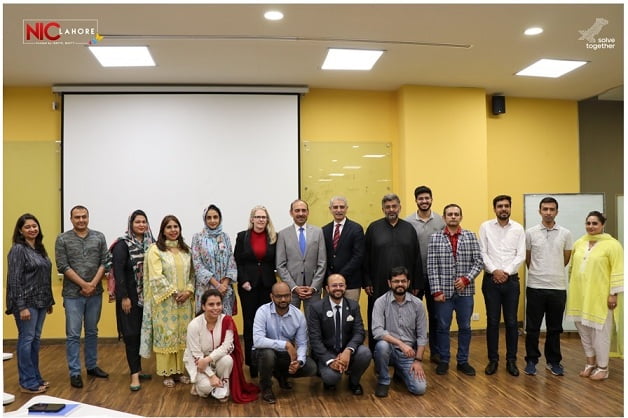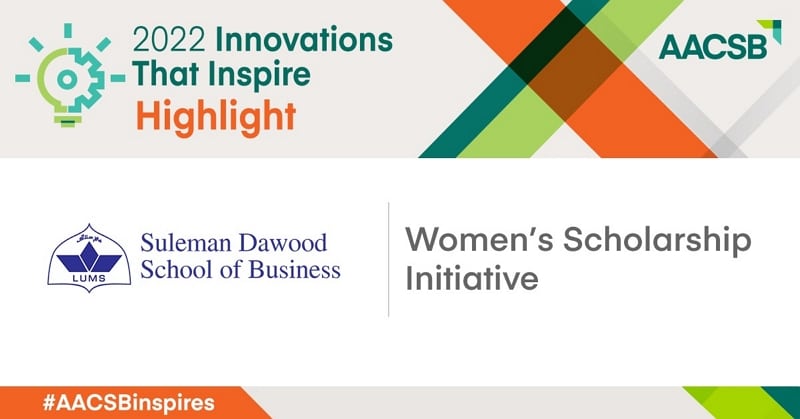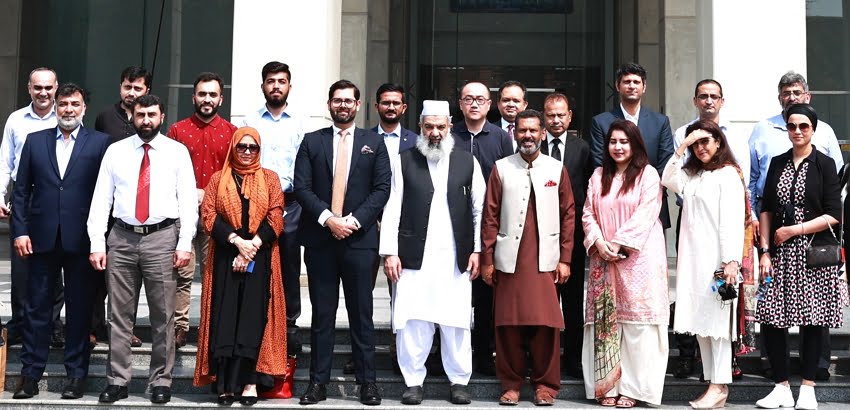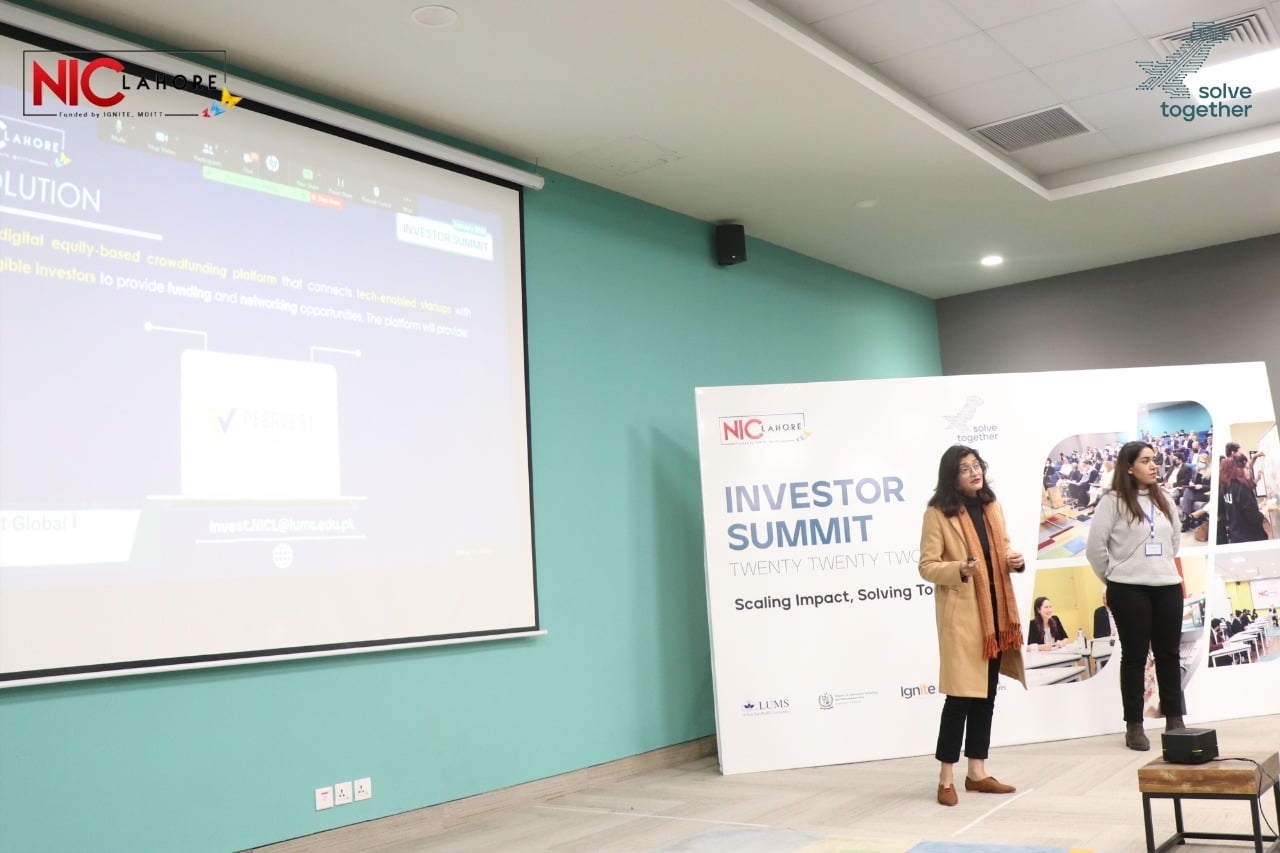Lahore – LUMS recently hosted the ‘Pakistan@75’ Summit curated by the South Asia Centre of the London School of Economics and Political Science. This collaborative event brought together over two hundred and fifty students, academics, industry professionals, and entrepreneurs to participate in a series of critical conversations around topics ranging from policy and philanthropy to health and the future of Pakistan’s economy.
“Debates about Pakistan’s legal, economic and developmental challenges and issues are ones the world can learn from,” said Professor Alnoor Bhimani, Honorary Dean at the Suleman Dawood School of Business, LUMS and Professor, LSE and Director, LSE South Asia Centre who formally inaugurated the Summit. Mr. Shahid Hussain, the University’s Rector spoke about the critical importance of discussing Pakistan’s future while Dr. Arshad Ahmad, Vice Chancellor of LUMS noted: “Pakistan @75 brings prescient topics to modernise Pakistan and build capacity to become a powerhouse on a bold trajectory of a nation-building agenda.”
The proceedings commenced with a panel discussion on Decolonising Law for a Modern Pakistan. Dame Maura McGowan, Judge, High Court of England and Wales, explained that decolonisation is “a meaningless exercise unless we have a vision of what it would look like.” The panel commenting on the issue included Justice Qazi Faez Isa, Justice, Supreme Court of Pakistan, as well as law advocates Dr. Amber Darr, Ms. Sara Malkani, and Mr. Salman Akram Raja.
A second panel discussing “Can Pakistan Become South Asia’s Powerhouse?” included Dr. Ali Cheema, founding member of the Centre for Economic Research in Pakistan and Director of MHRC; Mr. Abdul Razak Dawood, Pro Chancellor, LUMS; Ms. Sania Nishtar, Public Health Advocate; Mr. Muhammad Amjad Saqib, Founder, Akhuwat Foundation, and Dr. Mariam Chughtai, Associate Dean, School of Education, LUMS.
Dr. Cheema outlined the developmental challenges and the hard constraints facing Pakistan and suggested several key drivers. Mr. Dawood said “Population and climate change are the biggest economic threats facing Pakistan, followed by the issue of energy crisis and national debt.” Dr. Sania Nishtar highlighted “If the office of the Auditor General was to be reformed, it would become a powerful engine of change for the country”. Dr. Muhammad Amjad Saqib stressed the need for comprehensive social, political, and financial inclusion of the forgotten members of society on the front lines.
The Summit concluded with the launch of the LSE South Asia Centre’s Annual Forum, with a conversation on nation-building between Syed Babar Ali OBE, Founder LUMS, businessman, philanthropist, and educationist and Dean Bhimani. According to Mr. Ali, Pakistan’s key problem is the lack of investment in education. “Give people the authority and autonomy to deliver what they are good at, not something that is out of their reach.” The Summit concluded with a note of thanks by Professor Bhimani and a promise to celebrate “Pakistan@80” in 2027.

